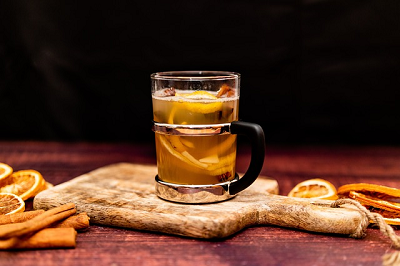What to Do If Prostatitis Recurs After Drinking Alcohol?
Prostatitis is a common urinary system disease among men, often causing painful inflammation and discomfort. However, once symptoms subside, many patients neglect the restriction on alcohol consumption, which can lead to a recurrence of the disease. Why does drinking alcohol cause symptoms to recur, and what should patients do if their condition flares up after drinking?

Why Does Drinking Alcohol Cause Prostatitis to Recur?
1. Stimulate Prostate Congestion and Worsens Inflammation
Alcohol is a stimulant that can cause congestion and swelling in the urinary system, especially in the prostate. This stimulation makes the prostate more sensitive and prone to damage, worsening existing inflammation and leading to the recurrence and intensification of symptoms.
2. Suppress Immune System Function
Excessive alcohol consumption suppresses the immune system, reducing the body's ability to fight pathogens such as bacteria. This makes the prostate more susceptible to bacterial infections, triggering a recurrence of inflammation. Additionally, alcohol can diminish the effectiveness of antibiotics, compromising the treatment effects.
3. Increase Urinary Tract Irritation
Drinking alcohol increases urinary frequency and volume, exacerbating irritation to the urinary tract, including the urethra and prostate. The frequent expulsion of urine places additional stress and pressure on the prostate, making it more likely for symptoms to reappear.
4. Cause Hormonal Imbalance
Alcohol contains a significant amount of ethanol, which metabolizes into acetaldehyde in the body. Acetaldehyde is a toxic substance that increases capillary permeability, potentially causing severe endocrine and metabolic disruptions. These disruptions can lead to a recurrence of disease.
5. Lead to Blood Vessel Dilation
Alcohol dilates blood vessels and increases blood flow. When men consume alcohol over an extended period, it can cause the prostate to remain in a state of chronic congestion, prompting a relapse of prostatitis.
What to Do If Drinking Alcohol Causes a Recurrence of Inflammation?
1. Stop Drinking Alcohol
Prostatitis patients often experience a recurrence of symptoms after consuming alcohol. Therefore, the first step when symptoms reappear is to stop drinking. Patients should completely quit drinking or reduce the frequency and amount of alcohol consumption. Seeking support from family, friends, or a professional doctor can help in creating and strictly following a plan to quit drinking.
2. Seek Medical Help
If prostatitis recurs, it is crucial to seek medical attention promptly. A doctor may develop a treatment plan based on the severity of the symptoms and the patient's condition. Patients may be prescribed antibiotics, anti-inflammatory drugs, or Diuretic and Anti-inflammatory Pill to relieve symptoms. It is essential to follow the doctor's instructions carefully and not to stop or alter the treatment regimen without consultation.
3. Increase Fluid Intake
Drinking plenty of water helps dilute urine and reduce the concentration of harmful substances, thereby lessening irritation to the prostate. Patients should ensure adequate daily water intake to keep the urine flowing smoothly, which aids in flushing out waste and bacteria from the body. They should also avoid excessive alcohol or caffeinated beverages, as these can exacerbate urinary irritation.
4. Maintain Regular Urination
Regular urination helps reduce the time urine stays in the prostate, minimizing irritation and inflammation. Patients should develop a habit of urinating regularly and avoid holding in urine for too long. Responding promptly to the urge to urinate can prevent prolonged pressure on the prostate.
5. Adopt Lifestyle Adjustments
Maintaining good lifestyle habits, such as having a regular sleep schedule, engaging in moderate exercise, and ensuring adequate sleep, can boost the immune system and reduce the risk of prostatitis recurrence. A diet rich in vitamins, minerals, and fiber, including fresh fruits and vegetables, should be prioritized.
Patients should also reduce their intake of excessive fats, sugars, and salt. Additionally, they should avoid spicy and irritating foods, such as chili peppers and strong tea, as these can worsen prostate inflammation.
You may also be interested in:
Why Do Some Prostatitis Patients Experience Prolonged Erection?
Does Prostate Calcification Mean You Have Prostatitis?
Why Does Your Prostatitis Improve During Exercise?



